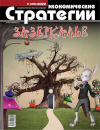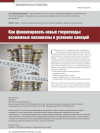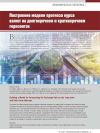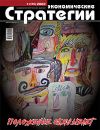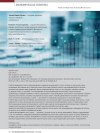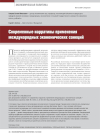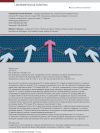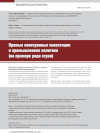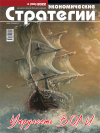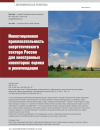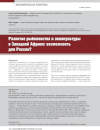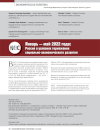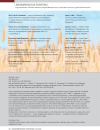How to Finance New Government Spendings: Possible Mechanisms in the Environment of Sanctions
DOI: https://doi.org/10.33917/es-6.186.2022.26-29
Sanctions against the Russian Federation have created fundamentally new conditions for the functioning of the Russian economy.
This poses new challenges, which require government spendings increase. It appears that Russian regulators have unused mechanisms, the use of which will provide the economy with new money, without complicating the situation of other sectors. The article suggests mechanisms that highlights internal sources of liquidity formation for the economy. In the environment of sanctions, such mechanisms also increase the independence of monetary policy from external constraints.
References:
1. Kommentarii Banka Rossii po operatsiyam na rynke gosudarstvennogo dolga [Bank of Russia’s Commentary on Operations in the Government Debt Market]. Bank of Russia, 2022, 18 marta, available at: http://www.cbr.ru/eng/press/event/?id=12763.
2. TsB RF [Central Bank of the Russian Federation]. Obzor riskov finansovykh rynkov, 2022, no 2–3(60–61), fevral’-mart.
3. Bank Rossii. Osnovnye napravleniya edinoi gosudarstvennoi denezhno-kreditnoi politiki na 2023 god i period 2024 i 2025 godov: Proekt ot 11 avgusta 2022 g. [Bank of Russia. Guidelines for the Single State Monetary Policy for 2023 and the Period of 2024 and 2025: the Draft of August 11, 2022]. Bank Rossii, pp. 24–25, available at: https://cbr.ru/about_br/publ/ondkp/on_2023_2025/
4. Ershov M.V. Kakaya ekonomicheskaya politika nuzhna Rossii v usloviyakh sanktsii? [What Kind of Economic Policy does Russia Need in the Face of Sanctions?]. Voprosy ekonomiki, 2014, no 12, pp. 37–53.


